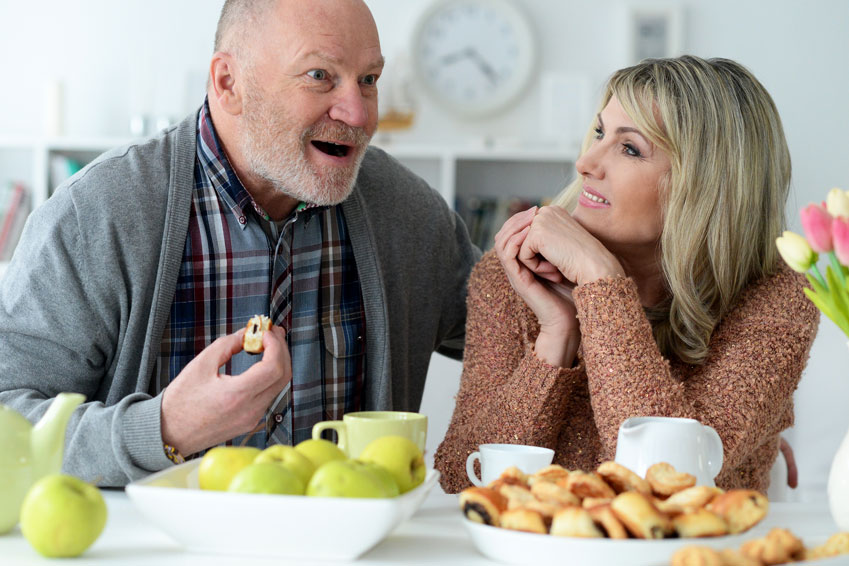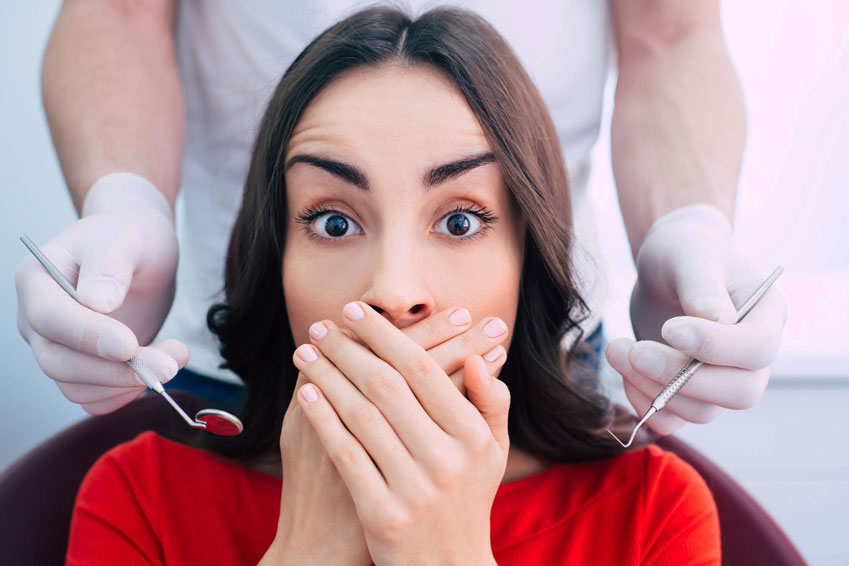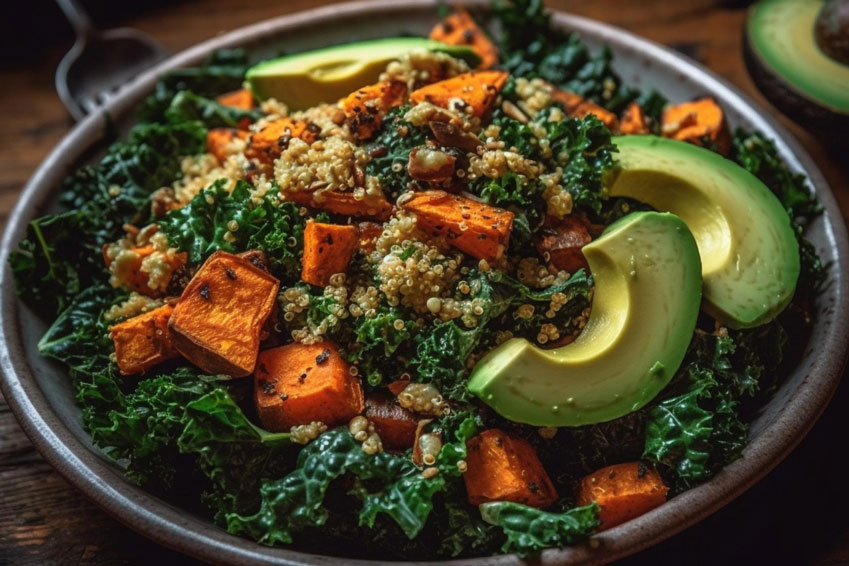
Anxiety is one of the most common mental conditions in the United States, affecting 40 million adults, a staggering 18% of the total adult population (ADAA.org, 2014). Not only does anxiety greatly reduce a person’s quality of life, it also makes them more susceptible to other forms of mental illness, such as depression.
While many people seek pharmaceutical help to beat anxiety, there are a number of lifestyle changes you can make to help quell this condition. Here are the ten of the most effective ways to reduce the impact of anxiety in your life…
Get Better Sleep
Sleep deprivation and mental disorders are often related (Sciencedirect.com, 2014). Anxiety can cause sleep disorders, but in many cases an existing sleep disorder can contribute to anxiety. To help overcome your anxiety it is important to maximize the amount of sleep you get each night.
Try to get at least 8 hours of sleep each night and see if it helps reduce the anxiety you are experiencing. There are many strategies you can use to get more sleep including,
- Going to bed earlier
- Limiting electronic device usage before bed
- Go to bed and wake up at the same time each night
- Stop drinking caffeine after 4pm
Making your bedroom sound proof and light proof - Meditate and Visualize
Research has demonstrated that mindfulness meditation can reduce anxiety and mild depression in many people (Harvard Health Blog, 2014). One of the key drivers of anxiety is that sufferers cannot clear their minds of obsessive thoughts — meditation helps deal with that aspect. A large meta-study of 47 clinical trials found that meditation was effective at reducing anxiety, insomnia, stress and chronic pain (Hopkinsmedicine.org, 2014).
In addition to mindfulness meditation, there are various other forms of relaxation therapies you could try. Yoga, reiki, tai chi, massage, progressive muscle relaxation and hypnosis are all popular ways to reduce stress and anxiety. Try any combination of relaxation therapies and see what works for you.
Eat Well and Use Supplements
There are a number of diet-related triggers that can increase anxiety. Sudden spikes or drops in blood sugar levels can trigger anxiety (Psychologytoday.com, 2014). Eating disorders or a poor diet could cause your blood sugar levels to drop. Sugary foods, simple carbohydrates and large meals can cause your blood sugar to spike. Eat a diet filled with complex carbohydrates to moderate blood sugar levels. Look for nutrient rich fruits and vegetables.
Caffeine has been demonstrated to worsen anxiety, so should be avoided (Lee, Cameron and Greden, 1985).
There are a number of minerals and herbs that have been demonstrated to reduce anxiety (Webmd.com, 2014). Try using magnesium, chamomile, kava, lemon balm, St John’s wort, chamomile tea, valerian root and passionflower to see if they are effective for you.
Two omega-3 fatty acids, eicosapentaenoic acid (EPA) and docosahexaenoic acid (DHA), may be effective at reducing anxiety (Psychologytoday.com, 2014). You can obtain omega-3 fatty acids from eating oily fish, eating avocados or by taking a supplement.
There is some research that suggests anxiety ad depression might originate from having an unhealthy intestinal tract health (Heijtz et al., 2011). A link between healthy gut microbiota and brain development was found in mice that might explain why some people experience anxiety. If your diet has been poor or you have taken antibiotics recently, try using probiotics to rebuild the health of your gut flora. It may be causing your anxiety.
Exercise
Exercising is a fantastic way to beat anxiety for a number of reasons. As you exercise you release endorphins into your body that can help improve your mood. Exercising helps you to clear your mind as you focus on the current physical activity you are enjoying. The physical tiredness from exercise can help you sleep better. Finally, being fit may help address the root causes of mental illnesses you are experiencing.
Plan Your Anxiety Away and be Productive
Anxiety can sometimes be driven by the sheer number of problems you are worried about. Your mind constantly flicks between the various problems and anxiety builds up.
To address this problem, document all of the issues you are worried about and how to fix them. Planning ahead and taking action on the problems you are facing, even if it’s just writing them down, can reduce anxiety greatly.
Take Action on Anxious Feelings
Sometimes you need to take immediate action when an anxious feeling hits you to shake it off. Prepare mental or physical actions to combat anxious thoughts as soon as they appear. Some actions that you can incorporate to beat anxious thoughts include:
- A spoken mantra which breaks up the anxiety pattern
- Positive self talk
- Deep breathing
- Immediate physical activity (taking a walk or doing pushups)
Laugh More
Laughter is incredibly effective at beating anxiety. It can reduce the amount of anxious thoughts you are experiencing, lift your mood and flood your body with endorphins. If you can learn to laugh at your anxious feelings and trivialize them, you are even better off.
Aromatherapy
There is evidence that burning certain essential oils may have a calming effect on the brain. A meta-study looked at 16 randomized controlled trials and found that aromatherapy reduced anxiety and had no negative side effects (Ncbi.nlm.nih.gov, 2014). Try using essential oils that contain lavender, frankincense, lemon myrtle, eucalyptus, laurel leaf or melaleuca.
Talk to Friends and Share Your Feelings
Simply talking about your problems with other people is a great way to deal with anxiety. Instead of having these issues rattling around in side of your head, you can talk them over with a friend or medical professional. A lot of the time, seemingly big problems become small when you talk about them.
Focus on Others
One interesting way to reduce anxiety in your own life is to focus on the lives of others. Helping other people not only makes you feel good, it occupies your mind. You will be spending time thinking about how to help other people solve their problems, instead of obsessing about yours.
By following these simple tips, you may reduce or remove the need for pharmaceutical treatment. By doing so, you can avoid the nasty side effects that some of those drugs have. Take action today to obtain a much better life without anxiety!
Sources
Adaa.org, (2014). Facts & Statistics | Anxiety and Depression Association of America, ADAA. [online] Available at: adaa.org/about-adaa/press-room/facts-statistics [Accessed 13 Oct. 2014].
Harvard Health Blog, (2014). Mindfulness meditation may ease anxiety, mental stress – Harvard Health Blog. [online] Available at: health.harvard.edu/blog/mindfulness-meditation-may-ease-anxiety-mental-stress-201401086967 [Accessed 13 Oct. 2014].
Heijtz, R., Wang, S., Anuar, F., Qian, Y., Bjorkholm, B., Samuelsson, A., Hibberd, M., Forssberg, H. and Pettersson, S. (2011). Normal gut microbiota modulates brain development and behavior. Proceedings of the National Academy of Sciences, [online] 108(7), pp.3047-3052. Available at: dx.doi.org/10.1073/pnas.1010529108 [Accessed 13 Oct. 2014].
Hopkinsmedicine.org, (2014). Meditation for Anxiety and Depression? – 01/06/2014. [online] Available at: hopkinsmedicine.org/news/media/releases/meditation_for_anxiety_and_depression [Accessed 13 Oct. 2014].
Lee, M., Cameron, O. and Greden, J. (1985). Anxiety and caffeine consumption in people with anxiety disorders. Psychiatry Research, [online] 15(3), pp.211-217. Available at: https://dx.doi.org/10.1016/0165-1781(85)90078-2 [Accessed 13 Oct. 2014].
Psychologytoday.com, (2014). Is There a Blood Sugar Monster Lurking Within You?. [online] Available at: psychologytoday.com/blog/inner-source/201311/is-there-blood-sugar-monster-lurking-within-you [Accessed 13 Oct. 2014].
Psychologytoday.com, (2014). Anxiety and Omega-3 Fatty Acids. [online] Available at: psychologytoday.com/blog/in-the-zone/201201/anxiety-and-omega-3-fatty-acids [Accessed 13 Oct. 2014].
Ncbi.nlm.nih.gov, (2014). A systematic review on the anxiolyti… [J Altern Complement Med. 2011] – PubMed – NCBI. [online] Available at: ncbi.nlm.nih.gov/pubmed/21309711 [Accessed 13 Oct. 2014].
Sciencedirect.com, (2014). Place of chronic insomnia in the course of depressive and anxiety disorders. [online] Available at: sciencedirect.com/science/article/pii/S0022395602000523 [Accessed 13 Oct. 2014].
Webmd.com, (2014). Common Vitamins and Supplements to Treat Anxiety. [online] Available at: webmd.com/vitamins-supplements/condition-1001-Anxiety.aspx [Accessed 13 Oct. 2014].


















